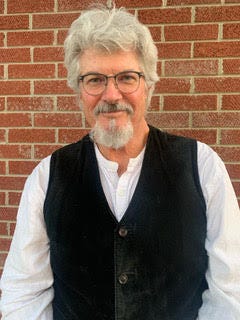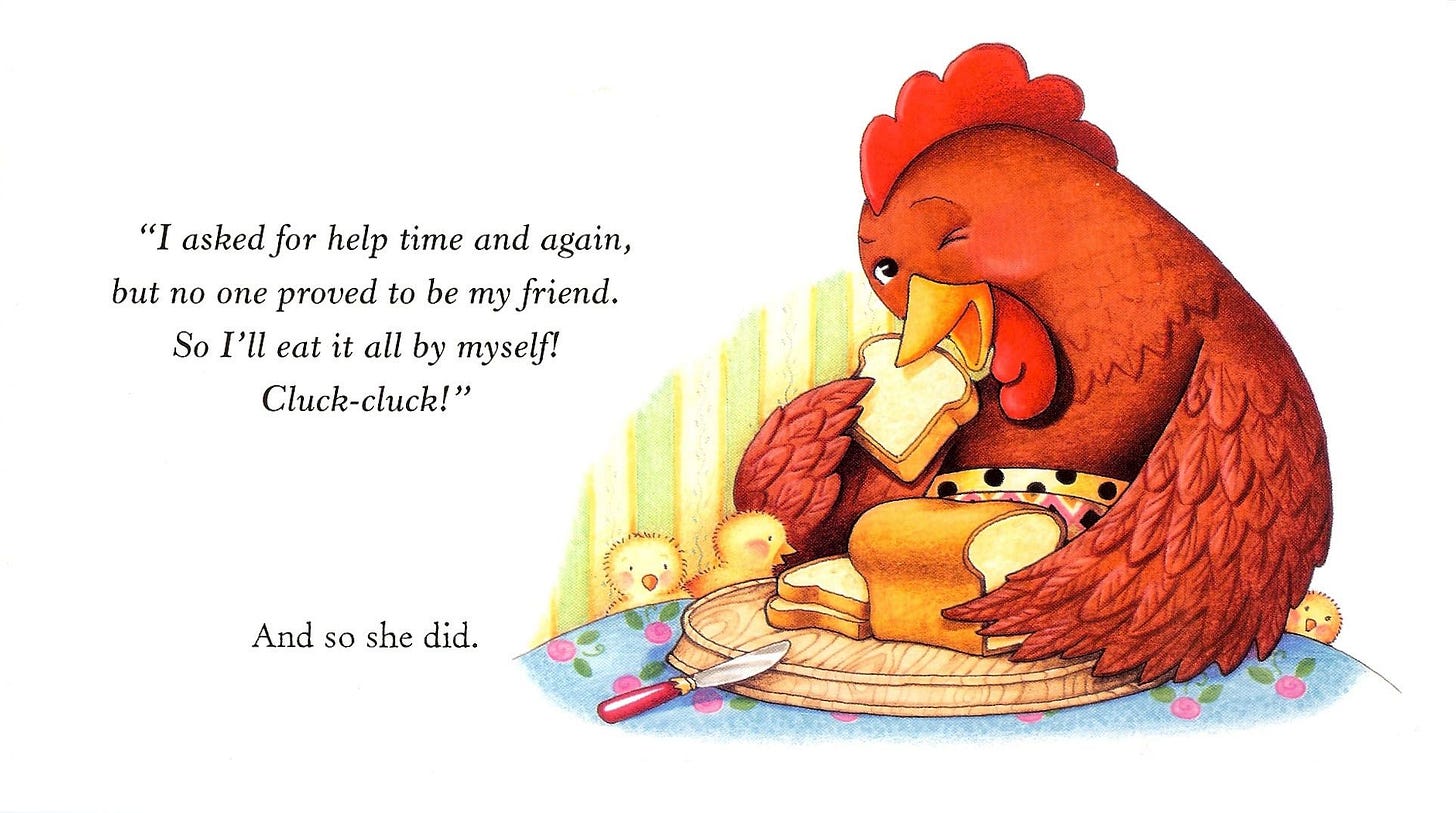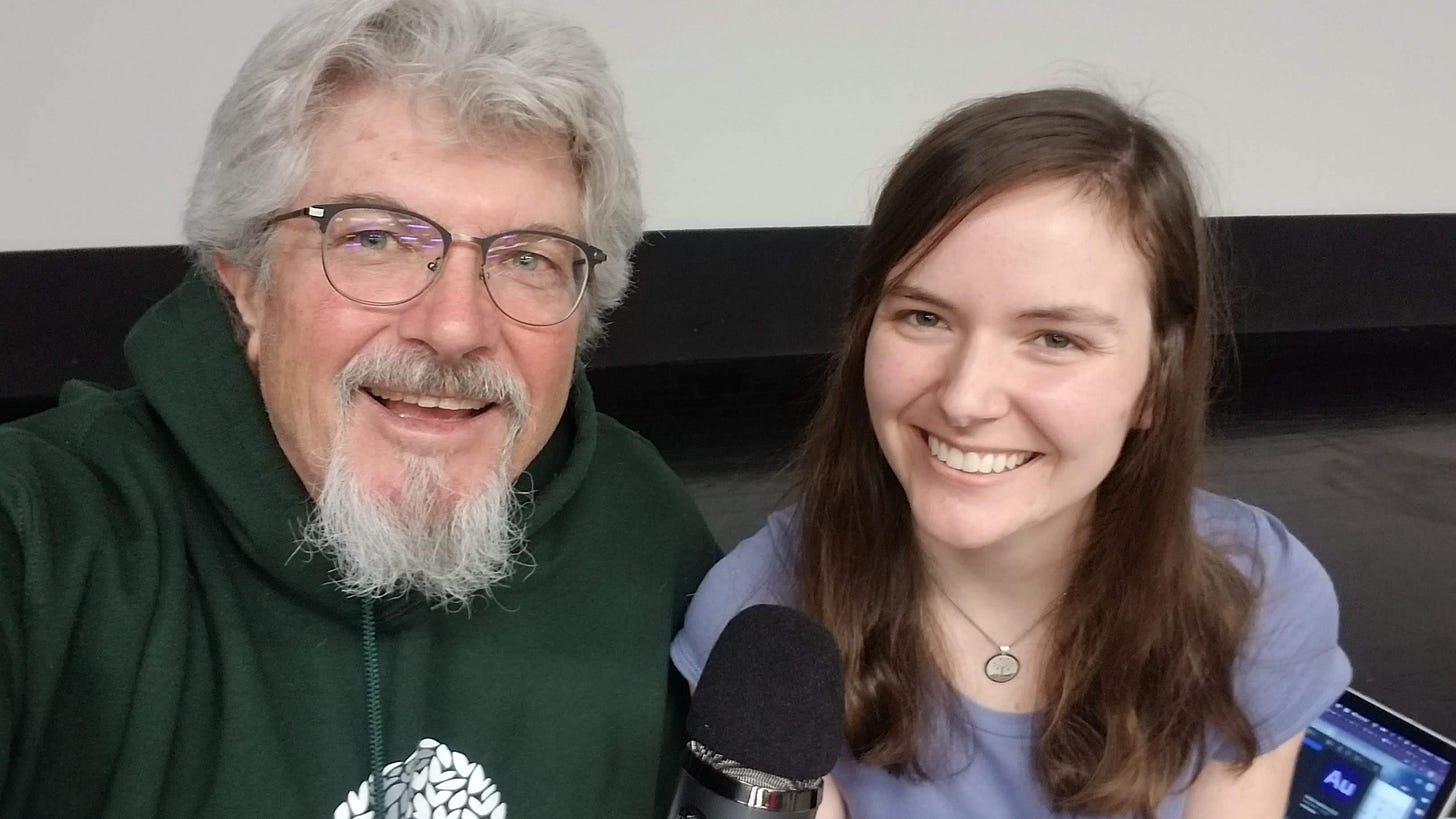Sailing into this week, the S.S. LMP welcomes Terry Linehan aboard!
To put it bluntly, Terry is a teddy bear. Terry is a comfort, he is a great listener, and he gives affectionate bear-hugs. Everyone should have a friend like Terry by their side.
I had the pleasure of learning under Terry as a Film Studies student at the University of North Carolina at Wilmington. In my experience, Terry is the person students can go to for a good chat or for counsel or for creative collaboration or for celebration of their achievements. He constantly finds the good in the circumstances laid out in front of him. And he really listens and truly cares about what his students have to say.
After 22 years of instruction at UNCW, Terry is now sailing off to the calmer waters of retirement. In the 22 years he devoted to education, I think most would agree that Terry’s genuine interest in and support of the people he comes into contact with led him to secure places in the hearts of his students and his peers.
Personally, I felt like I could come to Terry with any proposition or question, and he would welcome me with open arms. Terry also inspired me with his desire to create. Terry helped me navigate several internships, which ultimately gave me the foundation I needed to enter the film industry post-graduation. Terry wrote a recommendation letter for me. Terry encouraged me to grow, and he gave me the space to grow into. Terry ardently supported me, and I am forever grateful for his support.
Support is a thing, I’ve come to realize, that I’ve often swept to the wayside and have often taken for granted. I am a very stubborn independent person, so the thought of needing or even wanting help has usually left a bitter taste in my mouth. In my mind, if I couldn’t achieve something on my own, I was a failure, and if I asked for the help I needed, I was a burden.
I’m not sure where this mentality comes from. Perhaps it comes with being the eldest (as Sophie Hatter from Howl’s Moving Castle might say). Perhaps it comes with hubris rooted in self-sufficiency.
Either way, I rarely asked for help growing up because – like the Little Red Hen – I learned that I could do (and preferred to do) most things myself. And I never fully appreciated the support that I was given because, on a subconscious level, I didn’t think that I deserved it.
Interestingly, this hyper-independent mentality does not bode well in an industry founded upon group projects.
While it’s totally possible (and encouraged!) to create in a solitary way, moviemaking on a large scale is a community effort. The industry is composed of people from all walks of life and is one of only a few industries1 that has a place for everyone, regardless of training or background. Ultimately, this breadth of background means that a lot of different people with a lot of different personality traits, quirks, annoyances, and ways of working come together to raise each cinematic barn.
It is a huge effort to make a movie. Even on small-scale/independent productions, a film must pass through the years-long process of Development, Principal Photography, and Post-Production. After the film is made, then it has to be strategically distributed for it to be seen. And before Development even begins, there has to be a story to tell and a person who wants to tell it. For those reasons – and for many, many more – it is a marvel to me that any movie ever gets made.
But working in this industry has been good for me. It aligns with my project-based motivation. It gives me freedom to work on projects I am interested in, to set my own schedule, and to hop around to different jobs. It allows me to create. And it has taught me many lessons, two of which are:
Always say “thank you” &
Don’t be afraid to ask for help
The latter might be more accurately phrased as “ask for help as soon as you know that you need it because if you don’t, you’re inevitably going to hold up production or cost the studio money or have someone upset with you.”
Regardless of the sentiment, I’ve found that, in general, people want to help. But in order for people to help, you have to ask.
And asking for help is humbling. I feel gross and vulnerable every time I express a need, and I often catch myself ending my asks with “…if you want to,” or “…if that works for you,” or “…if that’s OK.”
This instinct to accommodate rather than to treat has done more harm to me than good, I think, even though it comes from a sincere place. On one hand, it seems like the “polite” way to interact because the last thing I want to do is to get in the way or to be a distraction. But on the other hand, it leads more often to feelings of neglect or of misunderstanding because the addition of the dependent clause dampens the expression of my need and puts the emphasis on the other person instead of on myself.
And I don’t want the emphasis to be on myself. I would much rather help someone else them have someone else help me. But sometimes I need help. And so sometimes I have to ask. And when I ask, my desires have to be clear.
And honestly, asking for help in a clear, direct way has worked wonders. I fully funded and produced my Honors Thesis project at UNCW by asking for help. I often get the items I need but don’t want to buy for myself as Christmas or birthday gifts because I made a wishlist. I hustled my way into getting to go to LA for a couple of weeks because I wanted to finish the work that I had started. I’m able to have these treasures of podcasts because I ask each guest to chat with me.
Time and time again, vocalizing my needs has proven to work in my favor. And time and time again, I am pleasantly surprised with the warmth I receive in response. Whether it be a gifted vacuum cleaner or a physical presence to cheer me on or a simple message of encouragement, these expressions of support show me that the people behind them truly care.
So, learning to ask for help has been hard even though I want to support others and I want to be and to feel supported myself. My comfort level and ability to ask seem to be contextual and ever-changing. But, of the few people who I have always felt comfortable asking for help from, I am pleased to say that Terry Linehan is one.
After our recent chat, Terry reached out with a resonant last thought:
The only thing I didn't really talk about in our conversation is the motto I've tried to live by and aspire to as an educator and that is something I tell my students... "I work for you." It is my job to hold student's well-being and education above all - above my own professional pursuits, above my work for the Film Studies department or the university. Caring about students and caring for students - supporting them - to use our word of the day, is the reason higher education exists in the first place, I believe. Professors should not be here to show students how clever they are. I believe we're here to open doors and prepare students to walk through those doors to fulfill their potential. We should be behind and beside our students for life.
A lovely, lasting sentiment from a lovely person.
Thank you, Terry, for your support as an educator, for your work as a filmmaker, and for your warmth as a friend. Wishing you all the best in your next season of life!
You can keep up with Terry’s cinematic work on IMDB. And you can even directly send a scroll to him at: linehant@me.com
Referenced people and materials:
All music for the podcast lovingly created by Ian T. Jones.
The other industries being theatre and the military. Do you know of others?














